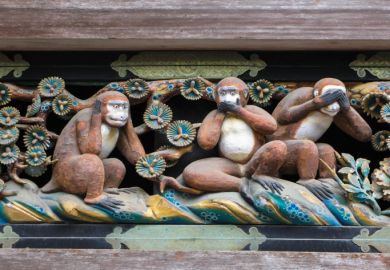This brief history is not only a record of a curious City of London survival, but also (in the words of one of the authors, who is bishop of London) an act of piety. It acknowledges the wish of the Elizabethan financier Sir Thomas Gresham to be remembered through the college which bears his name. It also recognises the dutiful care shown by both the Corporation of London and the Mercers' Company in discharging their responsibilities under the terms of a controversial will made over 400 years ago. The college's fortunes are charted throughout, ranging from the high points when it could be referred to as "the third universitie of England" (in 1615) to times when the audience might consist of no more than "one rusty old fellow". It attracted eminent early members of the Royal Society like Christopher Wren and Robert Hooke, besides more contemporary figures such as Cecil Day Lewis and John Dankworth.
At other times, its professors are almost beyond recall. It is a pity that the records for much of the college's academic life are incomplete, and those that do survive (like the Repertories) tend to be a bare record of appointments to the professorships and attendance at lectures.
By contrast, the changes in the status, location and work of the college in recent years are covered in unflinching detail, outlining the efforts of figures like David Vermont (past master of the Mercers' Company) to breathe new life into the institution. Attempts had been made before to restructure the college (it almost became Gresham University in 1897), and there was an uncomfortable interlude of alignment with the fledgling City University, though it is to be hoped that the title of the chapter in question ("Babylonian captivity") refers mainly to the short-lived location of the college in the Barbican. It is in splendid surroundings today at Barnard's Inn, appropriately enough, given that it occupies space once used by the Mercers' School, the "Promised land" indeed of the chapter heading.
Sir Thomas envisaged his college as a focus for the "new learning" of the Renaissance, and he would doubtless have approved of the college's modern interpretation of life-long learning and outreach, with ever broader horizons. The Puritan educational thinker Samuel Hartlib (who had a Gresham connection too) advocated the "invisible college" which was more a frame of mind than a physical place.
Gresham College today offers the rare opportunity for a broad-ranging audience to come into contact with eminent speakers (which can be demanding for both sides). With its body of professors but no formal courses, its academic independence and financial security, it is in a unique position to meet the challenge of another 400 years.
Tim Connell is professor of languages for the professions, City University.
A Brief History of Gresham College
Author - Richard Chartres and David Vermont
ISBN - 0 947822 16 X
Publisher - Gresham College
Price - £6.50
Pages - 100
Register to continue
Why register?
- Registration is free and only takes a moment
- Once registered, you can read 3 articles a month
- Sign up for our newsletter
Subscribe
Or subscribe for unlimited access to:
- Unlimited access to news, views, insights & reviews
- Digital editions
- Digital access to THE’s university and college rankings analysis
Already registered or a current subscriber? Login



